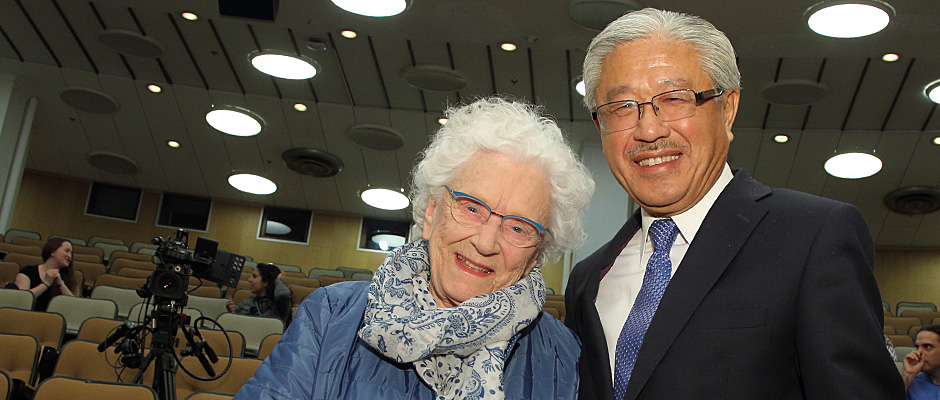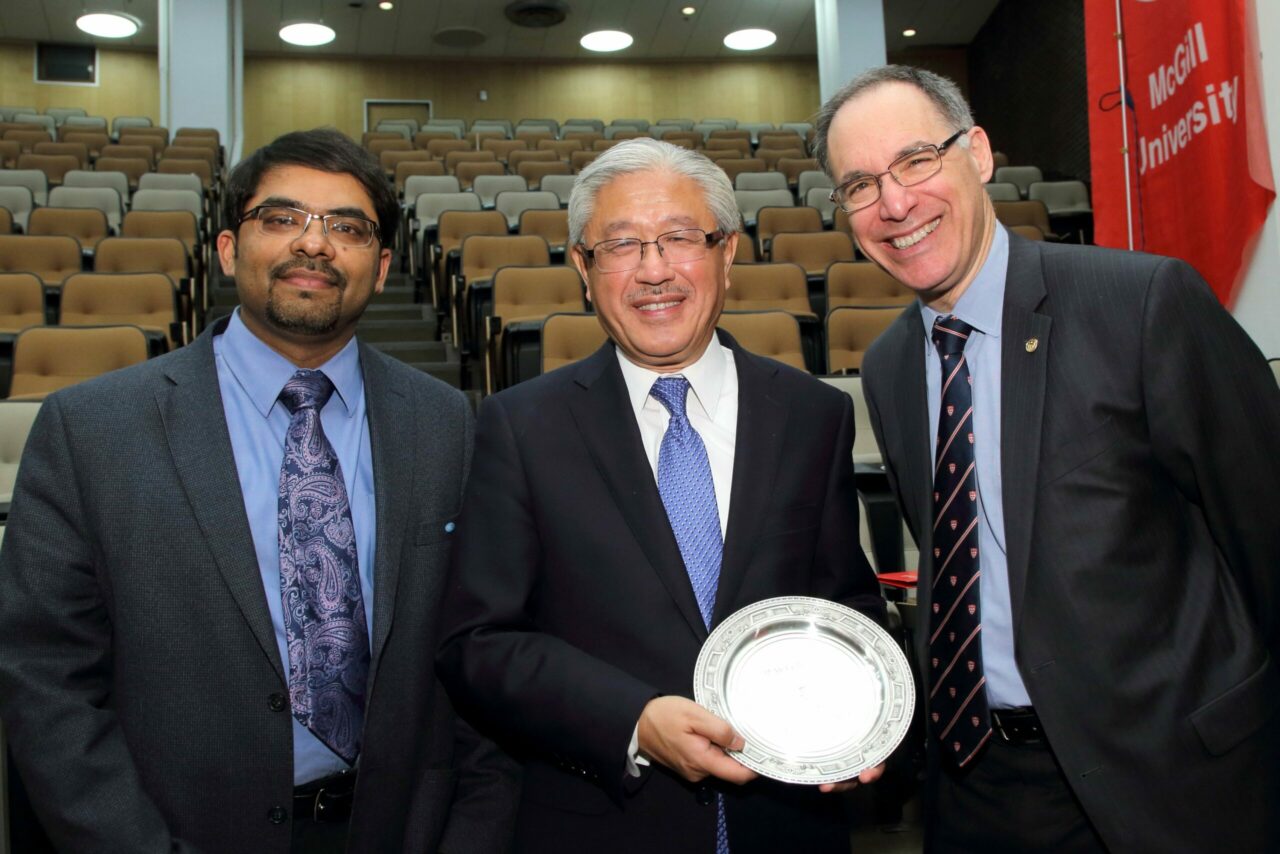Renowned McGill University alumnus Dr. Victor Dzau (BSc’68, MDCM’72), currently President of the National Academy of Medicine, was back in Montreal in early May. After delivering the opening keynote lecture at the Simnovate International Summit on May 5, he then delivered the seventh iteration of the Andrew F. Holmes Dean of Medicine Distinguished Lecture series, hosted by McGill Global Health Programs, on May 6.
Speaking to a captive audience in the R. Howard Palmer Amphitheatre, located in the McIntyre Medical Building, Dzau began his talk by sharing the story of his personal journey from a childhood in Hong Kong to his days at McGill to his time in leadership positions at Stanford, Harvard and Duke before landing in his current role in Washington to which he was appointed in 2014. He spoke of the importance of mentors and to the need to provide opportunities to unlock the potential in students. Noting the influence on his life of his own mentor from his McGill days, Dzau thanked Professor Hanna Pappius, who, now in her 90s, was in attendance for the talk.
The central focus of the lecture, titled “The neglected dimension of global security,” was on illustrating how, on a global scale, health care has

far ranging impacts on both security and economics. Though the world tends to look at pandemics as isolated health problems, today’s problems have broad impact. “In the past 100 years, the Spanish Flu and AIDS have taken more than 100 million lives,” noted Dzau. “How many wars claim that many casualties?”
In failing to adequately address health issues such as the recent Ebola outbreak, Dzau says that “we have massively failed humanity by failing to adequately recognize and respond to the outbreak in a timely manner.” Dzau called on world leaders to recognize the impact of health on global security and economics, noting that in the 21st century, the outbreak of pandemics will likely cost in excess of $6 trillion. “When you consider all of this, the world is under-investing in health. Going from pandemic to pandemic just to manage it versus thinking about what’s in the big picture,” said Dzau, who called for a comprehensive Global Health Risk Framework that went beyond just health care.
Dzau was not merely critical, offering a series of recommendations to the world: Better public health systems and universal health care in all corners of the world; effective global response, requiring a reform in bodies like the World Health Organization; and investment in research and development, particularly in the areas of vaccine and drug development and new diagnostics. Though much of the responsibility to implement these recommendations falls on the shoulders of governments, Dzau emphasized that public-private partnerships are key to solving global health issues.

